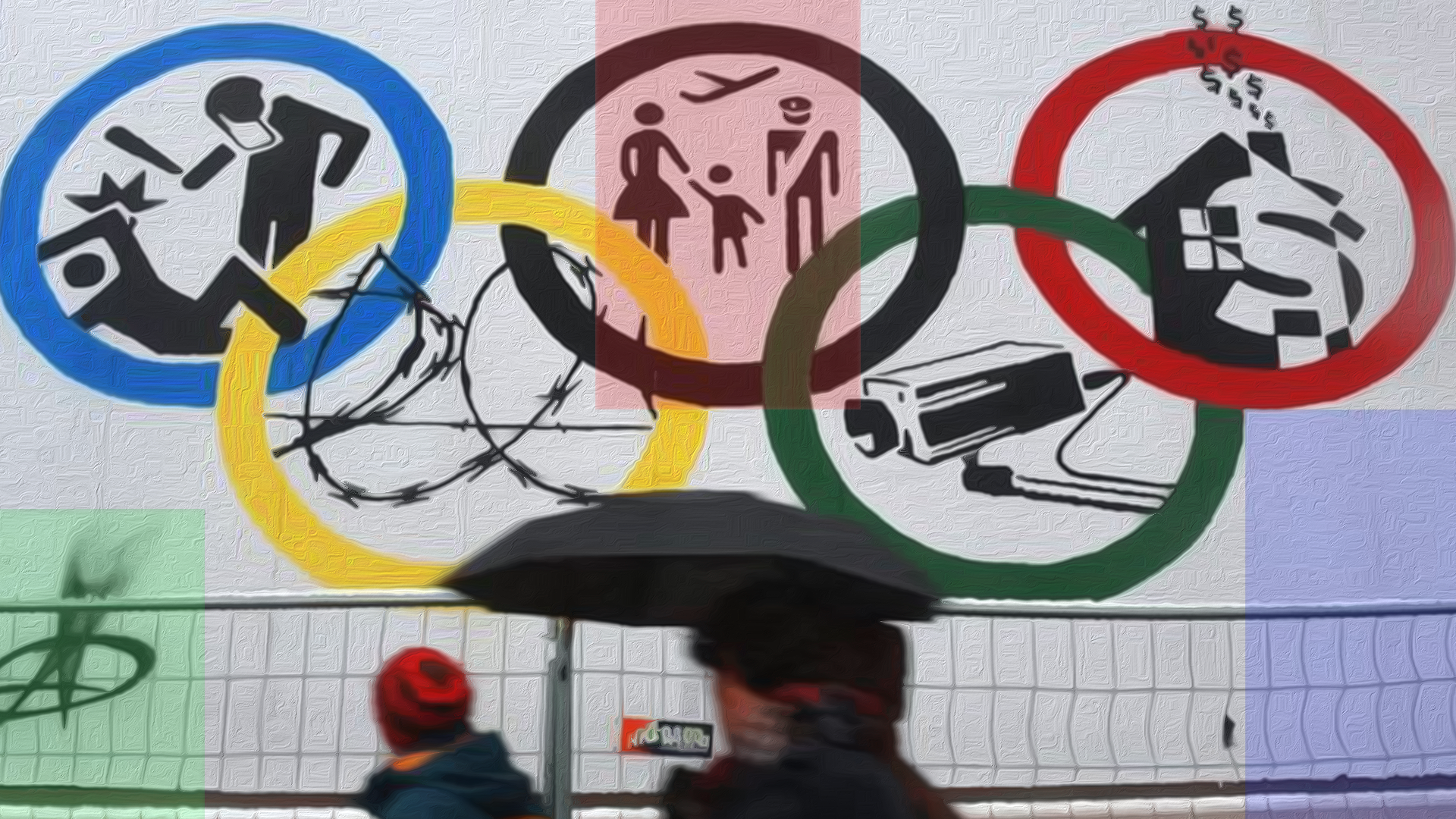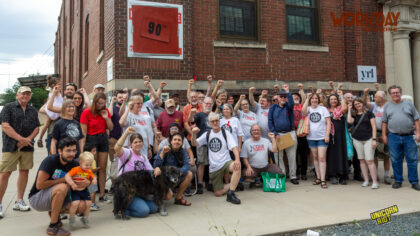Sport-washing, Militarization and Financial Scandals: A Brief Analysis of the Past Five Summer Olympics
The Olympic Games are mega sporting events that demand extensive security planning and financial management. Following the 9/11 attacks in 2001, global security protocols were significantly overhauled, with anti-terrorism and counterinsurgency measures rigorously applied to the Olympics. A review of past Olympic Games reveals recurring patterns, including gentrification and the displacement of residents, the introduction of new surveillance technologies, over-policing, repression of dissent, authoritarian legislation, and financial scandals. These issues have fueled growing opposition among residents in various candidate cities against hosting the Olympics. Simultaneously, the role of the International Olympic Committee (IOC) as a supranational body with independent economic interests has become increasingly apparent.
Below is a brief analysis of key strategies and developments in managing the Summer Olympics across five host cities since 2001: Athens in 2004, Beijing in 2008, London in 2012, Rio in 2016, and Tokyo in 2021. Catch up on our latest report about the 2024 Paris Olympics: Predictive Policing and the Paris 2024 Olympic Games: Security vs. Freedom.
TOKYO 2021
The Tokyo 2020 Olympics, scheduled for July 24 to Aug. 9, were envisioned as a moment of catharsis for Japan, a decade after a triple catastrophe: an earthquake, tsunami, and the Fukushima nuclear disaster. However, with the arrival of the COVID-19 pandemic, the Games were postponed to July 23 to Aug. 8, 2021, and rebranded as a testament to humanity’s resilience in the face of this global hardship.
Ultimately, the event became a $12.7 billion spectacle without any spectators. Despite Olympic Committee President Thomas Bach’s earlier reassurances that there were no obstacles to hosting the Games, a resurgence of COVID-19 cases led to the announcement on July 8, 2021 — just two weeks before the Games were set to begin—that all events would proceed without live audiences. This decision was driven by a new wave of outbreaks and substantial public pressure, as polls showed that 80% of the Japanese population opposed holding the Games. Protests erupted both before and during the Olympics.
The Games’ eventual execution exposed the financial imperatives of the IOC, which pushed for the event to proceed despite the pandemic. Bach acknowledged that the IOC’s finances were under significant strain due to the postponement, as 73% of its revenue comes from broadcasting rights. Canceling the Tokyo Games could have resulted in a revenue loss of $2 billion to $3 billion.
To mitigate the spread of COVID-19, stringent health protocols were enforced for athletes and visitors at the Tokyo Olympics. For the first 14 days in Japan, Olympic visitors outside the athletes’ village were prohibited from using public transport, visiting bars, tourist spots, and most restaurants. Their activities were strictly limited to pre-approved plans, with exceptions for designated convenience stores, delivery areas, and select private dining spaces.
“Bubbles” were created to isolate participants from the general population. Additionally, all athletes and their teams had to install a location-confirming and a health-reporting app (PDF) and consent to GPS tracking to monitor movements and contacts. Human observers were also placed at venues and hotels to ensure compliance.
Despite stringent measures, the fears of the Japanese public were realized. In the final week of the competition, Japan reported more than 14,000 COVID-19 cases per day, its highest number since the pandemic began.
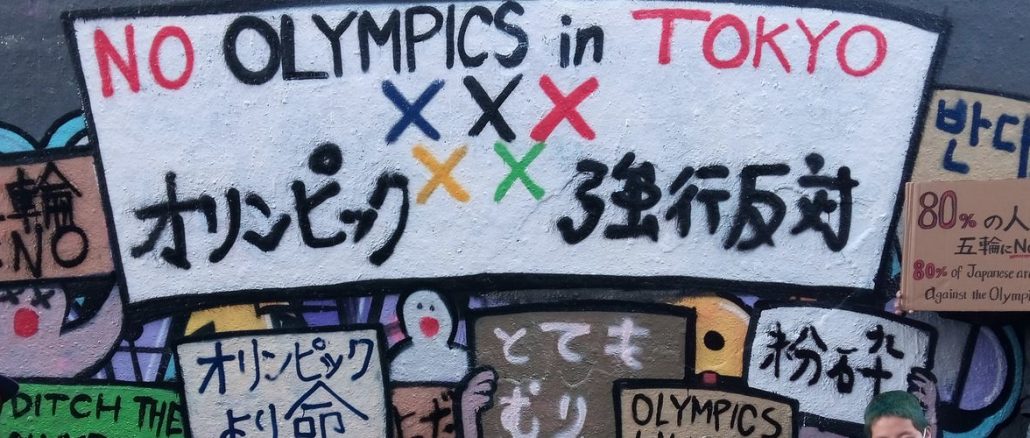
RIO 2016
Preparations for the 2016 Olympic Games in Rio de Janeiro, the first ever to be held in Latin America, were marked by significant social and human costs, particularly impacting the city’s poorer residents. The announcement in 2009 that Rio would host the Olympics spurred a violent campaign of urban regeneration, resulting in the displacement of more than 70,000 people, primarily from favelas, or informal high-density neighborhoods.
These evictions were often abrupt, and conducted without prior notice, accompanied by military police and heavy machinery. Residents who resisted faced police violence, immediate eviction, or indirect pressures, such as the cessation of essential services like electricity and waste collection, making their neighborhoods uninhabitable. Compensation offered to the displaced was insufficient amid a skyrocketing real estate bubble, leading to homelessness or displacement to distant suburbs. Despite this violent campaign, many of the key projects were left unfinished or abandoned without maintenance immediately after the end of the Games.
At the same time, the “war on drugs and gangs” intensified deadly police violence, beginning with preparations for the 2014 World Cup in Brazil and continuing in the lead-up to the Olympic Games in Rio. Police killings increased dramatically, mainly impacting young Black men in the favelas. The Public Security Institute of Rio de Janeiro recorded a 54% rise in police-related homicides from 2013 to 2015, totaling 645 deaths. This violent trend continued into 2016, with a noticeable rise in police killings as the Olympics neared. In April 2016, police killed 35 people, followed by 40 in May and 49 in June, resulting in an average of more than one death per day.
Security measures for the Olympics transformed Rio into a heavily fortified city. An unprecedented deployment of 85,000 security personnel, along with tanks, helicopters, drones, and facial recognition cameras, underscored the pervasive security presence. The surveillance highlight of the Games were the four aerial balloons equipped with advanced cameras that monitored the city continuously. These balloons, although lacking facial recognition or license plate reading capabilities, were synchronized with ground security cameras to enhance the monitoring of suspicious activities. Police operations during the Games resulted in at least eight fatalities. Finally, the enforcement of a new anti-terrorism law disproportionately targeted social movements by suppressing peaceful protests during the Games.

See Unicorn Riot’s frontline coverage from Brazil
LONDON 2012
The 2012 London Olympics unfolded in the shadow of the 2011 London Riots following the police killing of Mark Duggan. The riots were the most severe in three decades and revealed deep societal fractures and widespread frustration, particularly among disillusioned youth. Many criticized the government’s decision to invest billions in the Olympics while neglecting urgent social issues such as poverty, unemployment, and underfunded public services.
Organizers initially promised that the Games would be a “model of social inclusion,” with the regeneration of East London designed to benefit local residents. Plans included the construction of 30,000 to 40,000 new homes, with a significant portion intended to be affordable for key workers like nurses and teachers. However, instead of delivering on the promise of affordable housing, the regeneration efforts primarily fueled real estate development aimed at wealthier populations. This led to the accelerated gentrification of the area, displacing lower-income residents and small businesses.
Security concerns dominated the planning and execution of the Games, especially given the memory of the 2005 London bombings and recent riots. Already the most surveilled city outside of China, London saw an unprecedented expansion of security measures, effectively transforming the city into a fortress. Surface-to-air missiles were stationed on rooftops, a Royal Navy battleship was anchored in the River Thames and an LRAD sonic weapon for crowd dispersion was ready for use. Patrolling the streets were 48,000 security personnel, including police, private security guards and more military than were deployed at the time in Afghanistan.
For the first time in the country’s history military drones were deployed. Advanced invasive surveillance technologies such as scanners, biometric ID cards, number-plate and facial-recognition CCTV systems, disease tracking systems, and new police control centers and checkpoints were widely used.
The Olympics also imposed strict controls on political expression, in line with the Olympic Games Act 2006 targeting protests (the law text is here). Drawing lessons from the previous year’s riots, London police closely monitored social media to preempt any potential protests or disturbances. Additionally, special patrols were tasked with protecting the commercial interests of the Games’ sponsors, rigorously enforcing brand regulations and cracking down on unauthorized traders, further emphasizing the commercialization of the event.
See Unicorn Riot’s frontline coverage from London, including our series on gentrification
BEIJING 2008
The awarding of the 2008 Olympic Games to Beijing marked a significant triumph for the Chinese state, symbolizing its emergence as a global power at a pivotal moment. China aimed to showcase a renewed image to the world, pledging to address international geopolitical issues and improve domestic human rights. However, these promises were starkly contradicted.
Internally an intensification of repression and censorship emerged in the lead-up to the Olympics with a severe crackdown on freedoms. Writers, activists, journalists, and artists who expressed views contrary to the ruling Communist Party’s narrative were repeatedly accused of “inciting subversion” and imprisoned, despite international outcries and warnings from international human rights organizations. Many remained imprisoned years after the Olympics.
Concurrently, the construction of Olympic venues in Beijing led to widespread forced evictions, property confiscations, major displacement and severe suppression of any resistance. Illegal detention centers, known as black jails, were established to imprison dissidents and subject them to forced “reeducation” labor. The radical transformation of Beijing, aimed at presenting an immaculate facade, involved rigorous policing and anti-crime operations targeting beggars, vagrants and sex workers. Unregistered immigrants were targeted, many of whom had previously worked on the Olympic construction projects.
During the Games, any dissent was quickly suppressed. The Chinese government established designated protest zones and a protest application system, but no permits were granted, and applicants were targeted. Despite international pressure, China made minor concessions, like temporarily lifting the block on some international websites, a move welcomed by the IOC. However, the IOC remained largely passive in addressing China’s broken promises on human rights and media freedom. Similarly, companies like Yahoo, Google and Microsoft were criticized for supporting China’s censorship. Intimidation of domestic journalists persisted, and international reporters faced harassment and arrests.
Regarding data privacy, the U.S. Department of State warned American visitors of low privacy standards due to surveillance measures reportedly implemented by China’s Public Security Bureau in visitor accommodations.
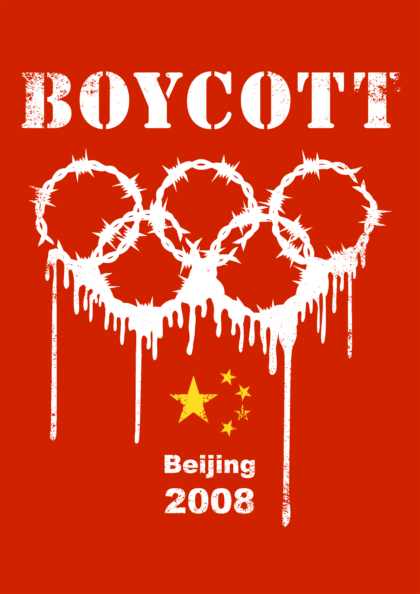
ATHENS 2004
The 2004 Olympic Games in Athens, envisioned as a triumphant return of the Games to their historic birthplace, took place during a period of apparent economic prosperity for Greece, particularly following its entry into the eurozone currency union in 2001. However, the event was ultimately overshadowed by scandals related to surveillance, financial mismanagement, and corruption.
In the post-9/11 era, security became a top priority, with the Greek government committing unprecedented resources to ensure safety. Security expenditures soared to €1.5 billion ($1.9 billion), making it the most expensive in Olympic history at that time. A prominent security measure included deploying a 61-metre Zeppelin over Athens, which sparked significant opposition due to concerns over surveillance.
Most importantly, under pressure from the United States, Greece invested €260 million in an advanced surveillance system known as “C4I” (Command, Control, Communications, Computers, and Intelligence). This system, developed by the American company SAIC and subcontracted to Siemens in Greece under questionable circumstances, was intended to provide comprehensive real-time monitoring of Athens through an extensive network of cameras, sensors, and communication tools.
Despite its ambitious goals, the C4I system was plagued by technical issues and was not fully operational during the Games. Beyond its shortcomings, the system became embroiled in a broader scandal involving the surveillance of Greek citizens, including government officials, journalists, and activists. This controversy, known as the 2004-2005 wiretapping scandal or “Greek Watergate,” implicated major telecommunications companies Vodafone and Ericsson and revealed direct collaboration between the U.S. National Security Agency (NSA) and Greek intelligence services, as evidenced by the Edward Snowden leaks.
Financial investigations exposed widespread corruption, with numerous contracts related to the Games awarded without proper tendering, reflecting a culture of kickbacks and favoritism. Mismanagement, construction delays, and last-minute expenditures led to a doubling of the initial budget from €4.5 billion to nearly €9 billion, with some estimates reaching as high as €13 billion. The Olympics costs deepened the country’s public debt. Six years later Greece would be on the dreaded IMF austerity track, sinking into a deep financial crisis that continues to this day. Many Olympic sites were finally abandoned without maintenance immediately after the Games.
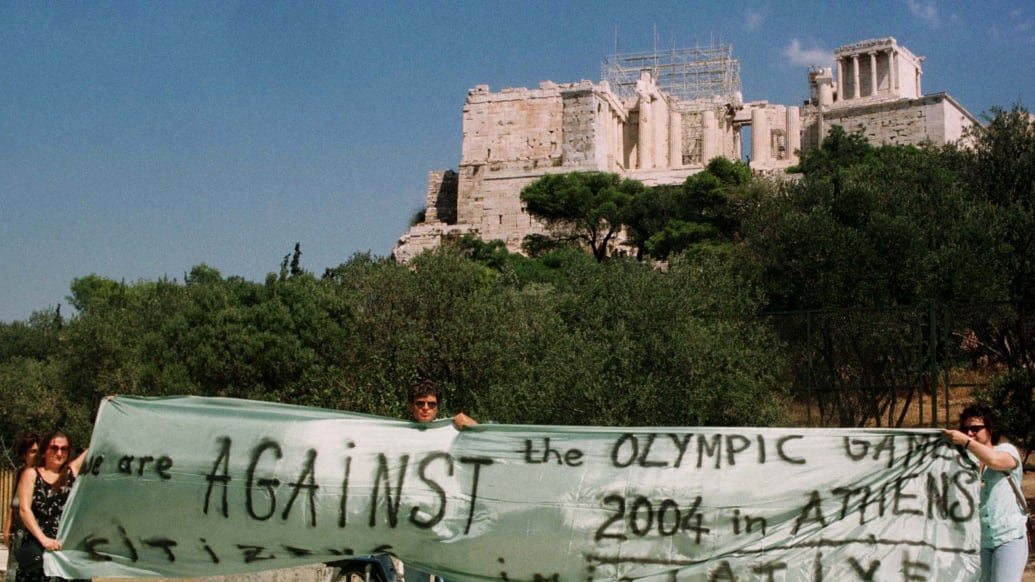
See Unicorn Riot’s frontline coverage from Greece
The growing opposition from residents in various candidate cities has led to withdrawals of Olympic bids throughout the years, fueled by the circulation of resistance experiences and the negative impacts of past Games on local populations. This year’s Summer Games are a prime example, with Hamburg, Rome, Budapest, and Boston all withdrawing their bids due to public pressure.
Predictive Policing and the Paris 2024 Olympic Games: Security vs. Freedom
Follow us on X (aka Twitter), Facebook, YouTube, Vimeo, Instagram, Mastodon, Threads, BlueSky and Patreon.
Please consider a tax-deductible donation to help sustain our horizontally-organized, non-profit media organization:

